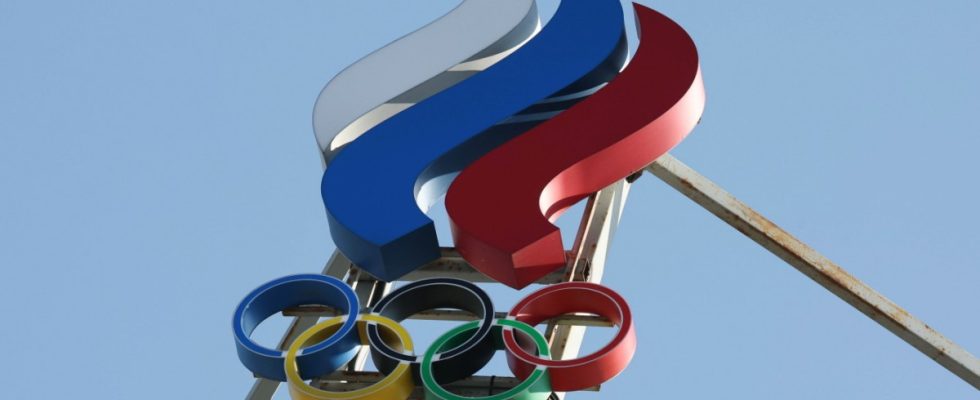Almost 22 months after the outbreak of war and despite the ongoing bloodshed in Ukraine, the IOC has taken the expected final step: Russians and Belarusians will be admitted as neutral athletes and subject to further conditions at the Summer Olympics in Paris next summer. The framework is now in place, but the discussions are likely to continue – not just in Ukraine, which was invaded by Russia.
The conditions of return include that Russians and Belarusians only take part in Paris under a neutral flag. Teams are not permitted. The national anthems, national symbols and flags are prohibited for the athletes of the two countries. In addition, they must not have any connection to the army and security organs and must not have actively shown support for the war in Ukraine. In addition, the anti-doping guidelines must be met – this is also a questionable requirement given the systematic cheating of the past. As an additional requirement, the IOC requires all athletes to make a written commitment to the Olympic Charter and thus also to the “peace mission of the Olympic Movement”.
The IOC has “given Russia the green light to use the Olympics as a weapon,” said Foreign Minister Kuleba
Ukrainian Foreign Minister Dmitro Kuleba sharply criticized the decision of the rings administrators led by IOC President Thomas Bach. “The International Olympic Committee has given Russia the green light to use the Olympics as a weapon,” Kuleba wrote on the short message service X. Every athlete from Russia and its ally Belarus will now be used for propaganda purposes, the foreign minister added. He also called on Ukraine’s partners to condemn the IOC’s decision.
In Russia the reactions were different: while the former star figure skating coach Tatjana Tarasova in the portal Sports Express spoke of a “great victory”, some officials felt that the IOC’s concessions did not go far enough. “These conditions are discriminatory, they violate the principles of sport,” said Russian Sports Minister Oleg Matysin.
The German Olympic Sports Confederation welcomes the admission of athletes from Russia and Belarus to the Paris Summer Games because of the “clarity that now prevails” for athletes on the way to the Seine. The associated “maintenance of strict sports sanctions” is just as important and right. “Now it is important to continue to implement these requirements consistently,” said DOSB President Thomas Weikert on Friday.
After Russia’s attack on Ukraine, Russians and Belarusians were initially excluded from international sports competitions. Belarus supports Russia in the conflict. The IOC had already opened the door to the major sports stages for both countries in the spring and set the framework for participation in competitions. In recent months, a number of world associations have followed the IOC’s guidelines and allowed Russians and Belarusians back in. The group of international athletics federations that continue to ban athletes from both countries has shrunk steadily in recent months. Nevertheless, World Athletics Federation head Sebastian Coe announced that his federation’s stance had not changed: “Maybe in Paris you will see some neutral athletes from Russia and Belarus, but that will not be the case in athletics,” he said at a press conference on Friday.
Even the dispute with Russia’s NOK over the occupied Ukrainian territories did not prevent admission to Paris
The IOC had repeatedly assured that the majority of the international athlete community was in favor of allowing Russian and Belarusian athletes to compete. However, the German Association of Athletes criticized the umbrella organization’s line: “This does not prevent the instrumentalization of sport and athletes for Putin’s war propaganda. The instrument does not appear to be suitable and has significant practical implementation problems.”
Even the recent dispute between the IOC and Russia did not prevent Olympic approval. The IOC Executive Board suspended the ROC due to the inclusion of regional sports associations in occupied Ukrainian territories in the Russian National Olympic Committee (ROC). The decision on October 5 to admit the regional sports associations of Kherson, Donetsk, Luhansk and Zaporizhia violated the Olympic Charter because it disregarded the territorial integrity of the Ukrainian Olympic Committee, it was said.
Apart from that, a number of questions remain unanswered: It remains unclear how reliable proof can be provided that athletes are not linked to the Russian military apparatus or the Kremlin.

